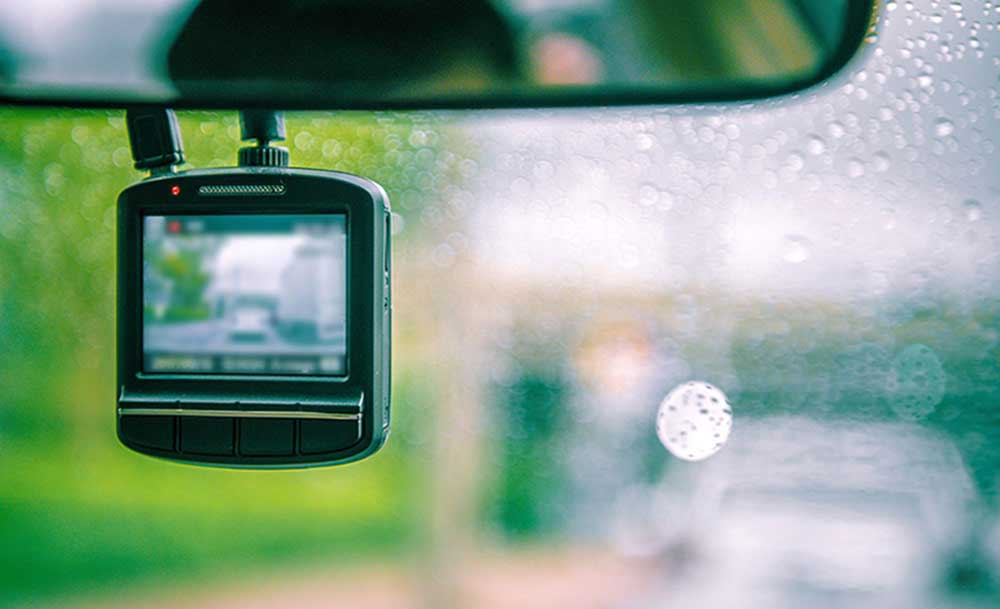Should you get a dash cam?

If you've never been in an accident, you might be wondering why you need a dash camera.
If you're a good driver, with a clean record, you don't have to worry about your own competence when you're on the road. That's a known quantity. The unknown quantity, which you do have to worry about, is other drivers and cyclists.
This is why so many people are now installing dash cameras — as a type of protection and support for their point of view in the case of an accident.
Dash cameras are no longer solely used by law enforcement. They have proliferated into civilian vehicles and have become the new witnesses to law-breakers on the road.
But beyond the ability to prove your innocence in a traffic altercation, some types of dash cameras offer functionality that extends beyond your daily commute.
For example, some dash cameras have a parking function that you can switch on (or that switches on automatically) when you park your car.
In most cases, this will cause the camera to record anything that happens in front of it while you are away, which can catch evidence of hit-and-run accidents.
Other cameras include inward-facing cameras that can also record evidence of theft, in case someone breaks into your car.
Dual-camera units are being used by concerned parents of young drivers. The cameras are designed to monitor the driving habits of teenagers, recording all of the front-facing action on the road, as well as the interior of the vehicle at the same time.
If the driver happens to look away from the road to fiddle with the radio, apply makeup, or anything else, it will be recorded.
Another feature in selected units is GPS mapping. The camera can imprint GPS coordinates into a timestamp on the video. This can also be extended into a memory that can provide you with a history of where your car has been, and when it was there.
Dash cameras won't make you a better driver and just because you install one, doesn't mean you'll get an insurance discount. However, some insurance companies may accept dash camera footage when trying to prove you're not at fault in an accident.
If your claim becomes a dispute, it's always better to have more evidence than less. Here's RACQ's point of view. The most important thing is that you ensure your dash cam does not obstruct your view and that you do not touch it while driving.
While there are no hard and fast rules as to the usage of dash cameras, as long as they don't distract you from driving, you might find the footage comes in handy in the event of an accident.
Related topics
Things to note
The information in this article has been prepared for general information purposes only and is not intended as legal advice or specific advice to any particular person. Any advice contained in the document is general advice, not intended as legal advice or professional advice and does not take into account any person’s particular circumstances. Before acting on anything based on this advice you should consider its appropriateness to you, having regard to your objectives and needs.
Insurance Products (excluding Travel Insurance) are issued by RACQ Insurance Limited ABN 50 009 704 152 (RACQI) and arranged by its agent, RACQ Distribution Services Pty Ltd (RDS) ABN 35 116 361 650, AFSL 567130 and RDS' authorised representatives (including RACQ Operations Pty Ltd ABN 80 009 663 414, AR No. 234978 (RACQO). Conditions, limits and exclusions apply. RDS and RACQO are in the RACQ group of companies. One of the companies in the RACQ group of companies has a minority shareholding in RACQI.
RDS and RACQO have not taken your personal objectives, circumstances or needs into account when preparing advice regarding insurance products and you will need to consider whether the advice is appropriate for you. Read the Product Disclosure Statement (PDS) and any applicable Supplementary PDS before making a purchase decision on this product. You can also access our Target Market Determinations on this website. RDS receives a commission from RACQI for the policies it arranges. RACQO receives fees paid for services it provides to RDS. Further details about remuneration are available on request prior to purchasing.
Banking and loan products issued by Members Banking Group Limited ABN 83 087 651 054 AFSL/Australian credit licence 241195 trading as RACQ Bank. Terms, conditions, fees, charges and lending policies apply. This is general advice only and may not be right for you. This information does not take your personal objectives, circumstances or needs into account. Read the disclosure documents for your selected product or service, including the Financial Services Guide and the Terms and Conditions, and consider if appropriate for you before deciding.
Except for RACQ Bank, any RACQ entity referred to on this page is not an authorised deposit-taking institution for the purposes of the Banking Act 1959 (Cth). That entity’s obligations do not represent deposits or other liabilities of RACQ Bank. RACQ Bank does not guarantee or otherwise provide assurance in respect of the obligations of that entity, unless noted otherwise.
RACQ Bank subscribes to the Customer Owned Banking Code of Practice which establishes higher standards than the law requires. The Code reflects modern consumer expectations and developments in approaches to issues such as consumer vulnerability, guarantors, and supporting customers through financial hardship. Please read our Customer Owned Banking Code of Practice page for more information.
RACQ Operations Pty Ltd (ABN 80 009 663 414 AR 000234978) and Members Travel Group Pty Ltd (ABN 45 144 538 803 AR 000432492) are acting as an Authorised Representative of the issuer of the insurance, Tokio Marine & Nichido Fire Insurance Co., Ltd. (ABN 80 000 438 291 AFSL 246 548). Any advice set out above is general in nature only, and does not take into account your objectives, financial situation or needs. Before purchasing any travel products, please consider the RACQ Travel Insurance Product Disclosure Statement (PDS) and the Target Market Determinations (TMDs) that apply to these products. Whilst the PDS outlines the Terms and Conditions of these products, the TMDs outline the intended class of customers that comprise the target market for these travel products. This will allow you to consider which products best suit your objectives, financial situation and needs and consider the products appropriateness to your personal circumstances. TMDs also outline matters involving the distribution and the review of these products. The PDS, Supplementary PDS and TMDs for each travel product can be found here.
